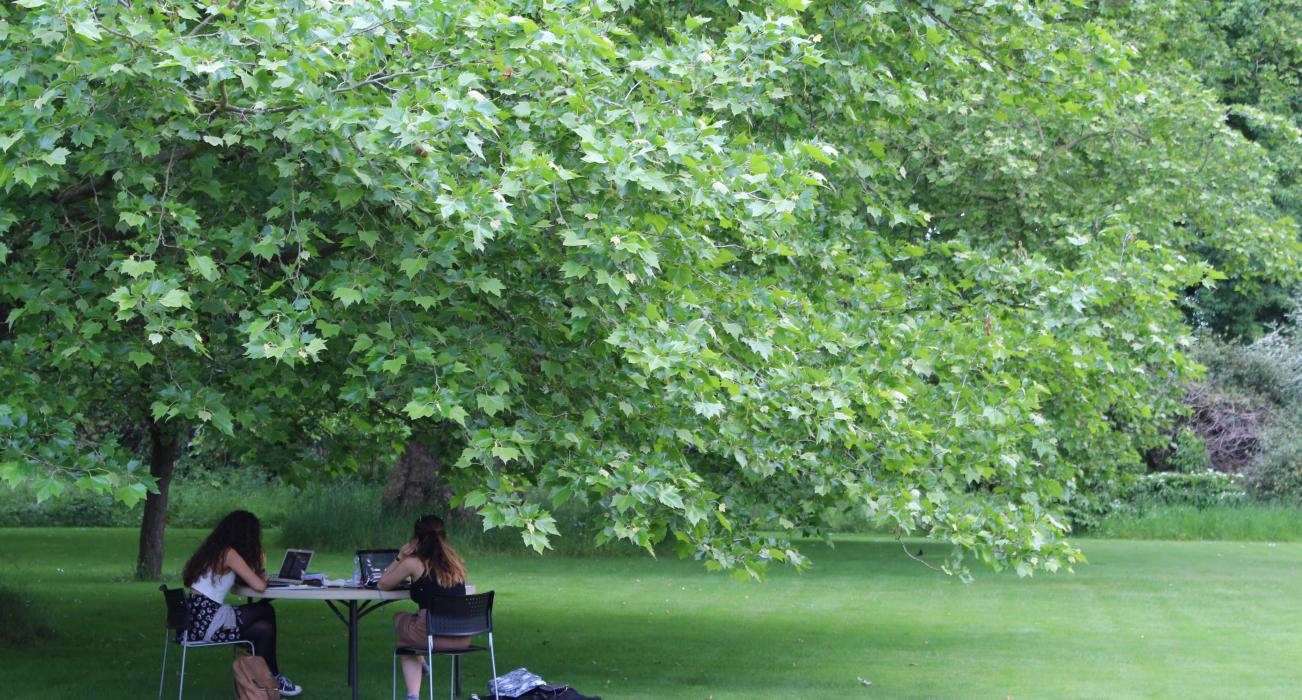Fees and other costs
Course Fees
This is the charge for your chosen course of study and covers such things as teaching and supervision, and research facility provision. This charge is known in Cambridge as the University Composition Fee (UCF).
The UCF is set by the University, not the College, and will vary considerably depending on the course you are planning to study and your fee status (which is determined by a number of factors, including your nationality and your place of ordinary residence).
Comprehensive information on how to determine your fee status and the specific UCF associated with the course you hope to study can be found on these pages of the University's Postgraduate Admissions website.
If you have a full scholarship or grant, these fees will usually be charged directly to your scholarship authority or grant-giving body. If you are self-financing or in a special category, you must pay them yourself, in advance, at the beginning of each academic year. Each postgraduate student should arrange for the payment of fees before coming into residence and should inform the College Office of arrangements. You should not expect remission of fees from the University or College and should provide sufficient money for all the time you expect to be here, allowing for inflation.
Self-financed postgraduate students may also be required to pay a fee to their Department to cover the exceptional cost of any special items needed for research. The Department should clearly indicate when it accepts an application if it intends to make such a charge and it will be shown as a special provision on the acceptance form sent to the candidate by the Postgraduate Admissions Office.
Accommodation and College Costs
Many Postgraduate students opt to live in College accommodation, others in private rental accommodation in the city. Either way, you will need to pay a rental charge. We try to keep rental costs for students in College accommodation as low as possible.
We aim to provide accommodation in College for all new postgraduate students in their first year if they want it. About a third of PhD students remain in a College room in their second and third years. College accommodation is divided into nine rental bands, depending on factors such as the size and location of the room and the facilities that come with it (if it is en-suite, for example).
Details about the range of accommodation available for postgraduate students can be found on the Postgraduate Accommodation page, and the costs can be seen on the Rental Bands page.
Other Living Costs
These will vary considerably from student to student depending on a range of factors such, lifestyle, dependents, and how much and how far you need to travel.
Where it can, the College tries to help minimise some of these costs. It provides access to high quality subsidised food, in both the informal setting of the Cripps cafeteria, and Formal Hall.
In terms of social life and settling in, all postgraduate students are invited to become members of the Middle Combination Room (MCR), which levies a small termly fee of £15. Membership of the MCR is not compulsory, although the vast majority of students take it up. Inevitable research costs are reduced by your access to the excellent libraries and other research resources of the College and the University.
There may be a large number of other annual costs, such as travel, clothing, childcare, fieldwork expenses, etc. The Postgraduate Tutor has access to funds which they can make a modest contribution to some of these expenses where a student's own finances are stretched.
Calculating how much you need
The Postgraduate Admissions website provides a fees and maintenance calculator to help estimate the finance you will need each year during your postgraduate studies. It is important to note that this is a minimum estimate, and that incidental and other costs are likely to push the total higher.
Billing
College bills are issued at the start of each term and detail the costs and charges for the coming term (such as room rent, including heat and light charges) together with any sundries for the previous term (such as College meal charges). Charges are shown in the Accommodation Handbook.
College bills must be settled by the middle of each Term.
Postgraduates are permitted to settle their College bill in three instalments. If a student does not think they will be able to pay their bill by the relevant date, they should contact their Tutor as soon as possible, and before the bill due date. See the College Rules section C (Financial Rules) for further details.
Sources of Financial Support
Please see the College scholarships and bursaries page for more information and other means of financial support.
